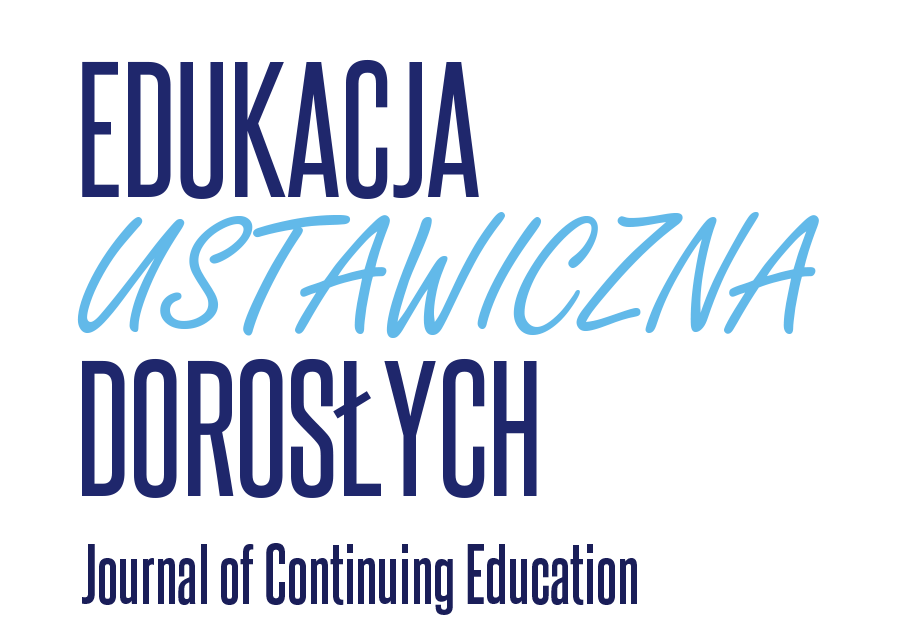The concept of sustainable development in continuing education and continuing vocational education in Germany ![]()
Koncepcja zrównoważonego rozwoju w kształceniu ustawicznym i edukacji zawodowej w RFN
DOI: 10.34866%2F2jj4-xf94
Ewa Przybylska
ORCID: 0000-0001-8338-5484
Słowa kluczowe: edukacja dla zrównoważonego rozwoju, edukacja ustawiczna, ustawiczna edukacja zawodowa, koncepcje pedagogiczne, polityka oświatowa.
Key words: education for sustainable development, continuing education, continuing vocational education, pedagogical concepts, educational policy.
Streszczenie: Na podstawie wtórnej analizy tekstów Autorka rekonstruuje niemiecki dyskurs naukowy dotyczący edukacji dla zrównoważonego rozwoju w kształceniu ustawicznym i edukacji zawodowej. Artykuł szkicuje fazy rozwoju edukacji dla zrównoważonego rozwoju, koncepcje pedagogiczne oraz praktyczny wymiar tej edukacji, która wprawdzie może już poszczycić się znaczącymi osiągnięciami, niemniej w dalszym ciągu poszukuje bardziej efektywnych form, metod oraz koncepcji dialogu z uczestnikami ofert edukacyjnych i możliwości dotarcia do szerszych kręgów społecznych. Ważnym wątkiem podjętym w tekście są inspiracje polityki oświatowej, która od kilku już dekad konsekwentnie wspiera rozwój edukacji dla zrównoważonego rozwoju, zarówno w sektorze formalnym, jak i pozaformalnym, nie tracąc z pola widzenia także potencjału tkwiącego w nieformalnych procesach uczenia się.
Abstract: Based on secondary analysis of texts, the author reconstructs the German scientific discourse on education for sustainable development in continuing education and vocational education. The article lays out the possible phases of development of education for sustainable development, pedagogical concepts and the practical dimension of this education, which, although it can already boast significant achievements, is still looking for more effective forms, methods and concepts of dialogue with participants of educational offers and opportunities to reach wider social circles. An important thread discussed in the text are the inspirations of educational policy, which has been consistently supporting the development of education for sustainable development for several decades, both in the formal and non-formal sectors, without losing sight of the potential inherent in informal learning processes

